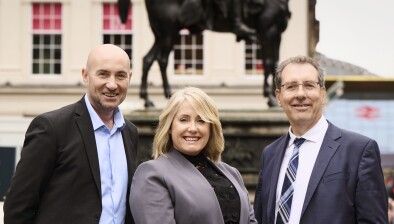Henderson Loggie: The law is closing in on bounce-back loan cheats

Christine Rolland
As pressure mounts on businesses facing the prospect of meeting loan repayments in challenging market conditions, accountancy firm Henderson Loggie is urging directors who have taken advantage of Covid financial relief schemes to seek professional advice to avoid stress.
Bounce-back loans were made available in May 2020 and started becoming due for repayment in May this year.
The scheme gave businesses speedy access to cash after a simple self-certification process. The UK Government provided a full guarantee for the loans and paid the interest direct to lenders for the first 12 months using money from the taxpayer.
Initially a six-year loan, it could be extended to 10 years under the ‘pay as you grow’ scheme, with interest fixed at 2.5%. £47.4 billion has been paid out to 1.56 million businesses in the scheme which was open to fraudulent activity.
Christine Rolland, forensic accounting director at Henderson Loggie, said: “The removal of most credit and affordability checks meant that the scheme was ripe for target by cheats. Businesses could access to loans of up to 25% of turnover to a maximum of £50,000 with practically no scrutiny of its ability to meet its obligations. A National Audit Office investigation in October 2020 put the potential default rate on bounce-back loan repayments at anything between £16.6 billion and £28.4 billion.
“Opportunities for fraud ranged from organised crime hijacking or impersonating legitimate businesses to individuals using dormant companies to apply for loans. Business owners could also self-certify to a higher level of turnover to receive the maximum loan available.”
Initially there was no system in place for the banks to prevent duplicate applications across lenders which during those early weeks reached an estimated £500 million. Also, it has emerged that businesses broke rules by having both a Bounce Back Loan and a Coronavirus Business Interruption Loan, many of whom appear to have been unaware that they weren’t supposed to have both and with no real system in place for the banks to cross check.
Shona Campbell, business recovery & insolvency partner at Henderson Loggie, added: “Struggling businesses that enter insolvency that have bounce-back loans obtained legitimately and used the monies in a proper manner will see those loans repaid by the government under the guarantee scheme without any personal liability for directors.
“Businesses that cannot afford to repay bounce back loans should seek early advice from an insolvency practitioner to ensure they fully understand the options available to them. By taking control, directors can avoid continued stress until another party such as a creditor or the Insolvency Service takes action and matters are taken out of business owners’ hands.”
Already the law is closing in on fraudsters and soon there could be no place to hide. The Insolvency Service is the government agency responsible for scrutinising and investigating the actions of directors. A director was recently disqualified by the Insolvency Service for 6 years after obtaining a £25,000 bounce back loan all the while knowing that her company was insolvent.
Two companies have been wound up in the High Court after receiving, between them, £130,000 in business grants from local authorities and £100,000 of bounce-back loans, although neither had ever traded.
Now, if passed by the House of Lords, a new Bill will give the Insolvency Service retrospective powers to disqualify directors who have dishonestly claimed bounce-back Loans, even if the company in question has been dissolved. Directors guilty of using the funds inappropriately may also find themselves personally liable.







